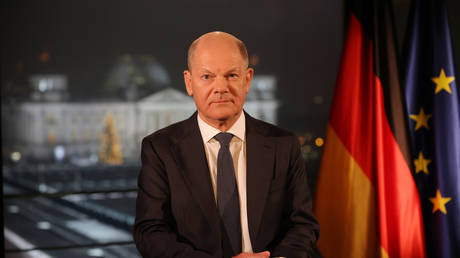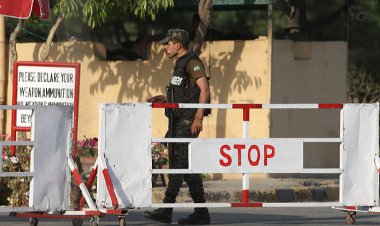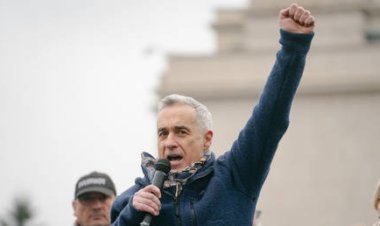Scholz Responds to Musk in New Year's Speech
In his annual New Year’s Eve address, German Chancellor Olaf Scholz subtly criticized tech billionaire Elon Musk.. source:TROIB RTS

During his annual New Year’s Eve address, German Chancellor Olaf Scholz made an indirect remark directed at tech billionaire Elon Musk. He emphasized that the future of Germany will be determined by its citizens, not by social media platform owners.
In a televised message on Tuesday, Scholz underscored the importance of national unity and urged for solidarity in light of ongoing economic difficulties. He also touched upon the issue of alleged “foreign interference” in German politics, specifically mentioning Musk's support for the right-wing Alternative for Germany party.
“Where Germany goes from here will be decided by you – the citizens. It will not be decided by the owners of social media channels,” Scholz stated, refraining from naming Musk directly.
“In our debates, one might be forgiven for thinking that the more extreme an opinion is, the more attention it garners. But it won’t be the person who yells the loudest who will decide where Germany goes from here. Rather, that will be up to the vast majority of reasonable and decent people,” he added.
Musk’s endorsement of the AfD, which is being monitored by domestic intelligence for its alleged extremist views, has sparked significant criticism from German officials. The billionaire has been an outspoken supporter of the party on social media and in various opinion pieces, while also expressing disdain for mainstream German politicians.
Friedrich Merz, leader of the conservative Christian Democratic Union, criticized Musk’s endorsement as “overbearing and presumptuous.” Meanwhile, Lars Klingbeil, co-chairman of Scholz’s Social Democrats, likened Musk to Russian President Vladimir Putin, suggesting that both share an agenda to destabilize Germany.
Christiane Hoffmann, a spokesperson for the government, remarked at a news conference on Monday that while everyone is entitled to their opinion, Musk appears to be trying to exert influence over the German elections.
The dynamics of Scholz’s coalition government shifted in November, leading to its collapse over disagreements on Ukraine aid and economic measures. The chancellor faced a confidence vote in December, resulting in the dissolution of parliament and the announcement of snap elections set for February 23.
The New Year’s Eve address also included reflections on Germany’s struggling economy, a recent attack on a Christmas market in Magdeburg, and the approaching 35th anniversary of German reunification. Scholz urged Germans to be wary of manipulation and to avoid conflicts among themselves.
Polls show that 56% of Germans believe Scholz's performance has been unsatisfactory, while 37% express satisfaction. This sentiment reflects unease about the country's economic stagnation, his migration policies, and a perception of ineffective governance.
Currently, the AfD is polling second with approximately 20%, trailing the CDU/CSU bloc, which is around 31%. A strong showing by the AfD could complicate government formation, as all mainstream parties have dismissed the possibility of a coalition with them.
Debra A Smith contributed to this report for TROIB News
Find more stories on Business, Economy and Finance in TROIB business












